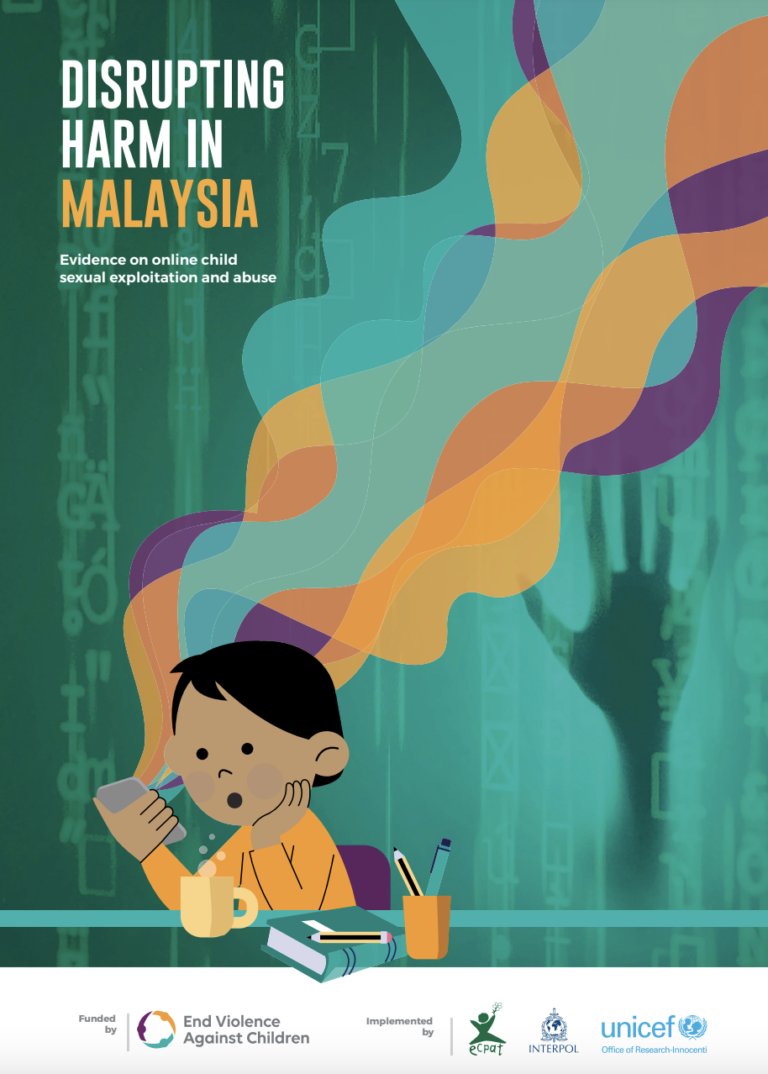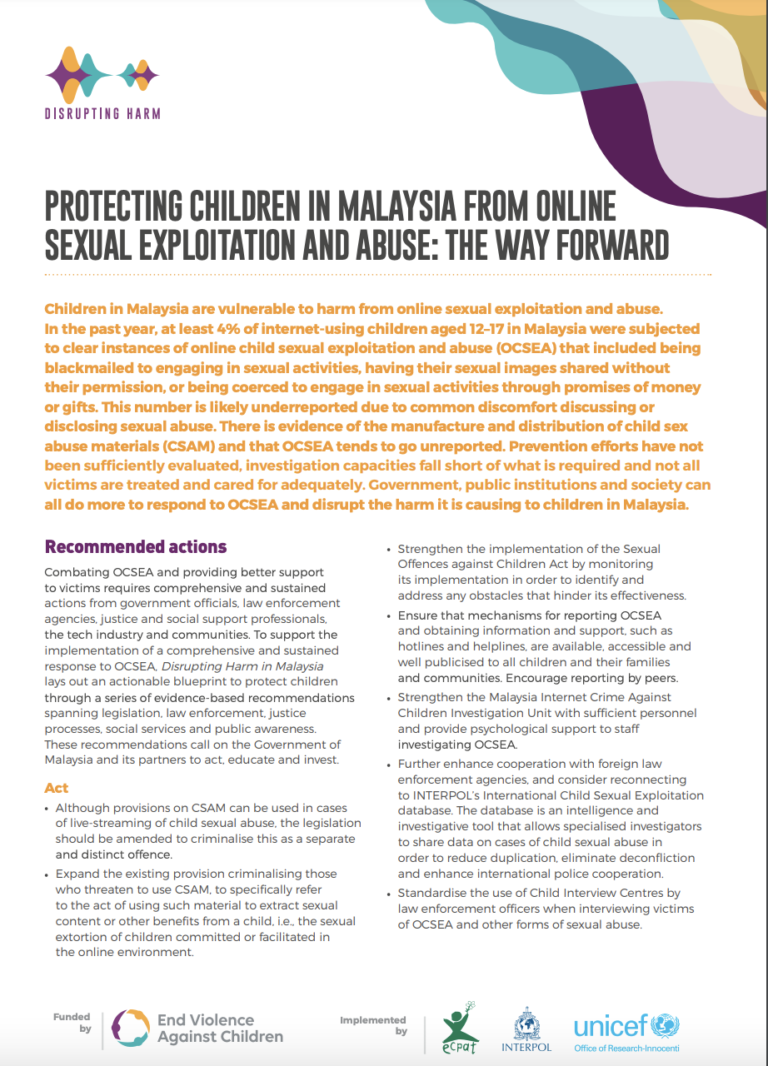Funded by the Global Partnership to End Violence against Children, through its Safe Online initiative, ECPAT International, INTERPOL and UNICEF Office of Research – Innocenti worked in partnership to design and implement Disrupting Harm – a research project on online child sexual exploitation and abuse (OCSEA). This unique partnership brings a multidisciplinary approach to a complex issue in order to present multiple viewpoints around the issue of OCSEA. The research was conducted in seven Eastern and Southern African countries and six Southeast Asian countries, including Malaysia. Data are synthesised from up to nine different research activities to generate each national report which tells the story of the threat of OCSEA and the national response mechanisms in place to tackle this form of violence against children. The report ends with a set of clear recommendations for action.
Key insights: The report concludes by providing six key insights from the research:
1. In the past year, at least 4% of internet-using children aged 12–17 in Malaysia were subjected to clear instances of online sexual exploitation and abuse, including being blackmailed to engage in sexual activities, having their sexual images shared without permission, or being coerced to engage in sexual activities through promises of money or gifts. Scaled to the population, this represents an estimated 100,000 children who may have been subjected to any of these harms in the span of a single year.
2. According to the household survey, while offenders of OCSEA are often someone unknown to the child, in some cases offenders are individuals the child already knows – often an adult acquaintance, a peer under 18 or a family member.
3. Children mainly experienced OCSEA through the major social media providers, most commonly via WhatsApp, Facebook/Facebook Messenger, WeChat or Telegram.
4. Children who were subjected to OCSEA tended to confide in people within their interpersonal networks, particularly friends, caregivers or siblings. Helplines and the police were almost never utilised to seek help.
5. A range of promising initiatives driven by government, civil society and industry are underway in Malaysia; however, weak interagency coordination and cooperation and limitations related to budgetary resources exist.
6. Although existing legislation, policies and standards in Malaysia include provisions relevant to OCSEA, including strong provisions regarding child-friendly investigations and prosecutions, support to implement such standards across the country and further legislative reform are needed for a comprehensive response to OCSEA. The report ends with a series of detailed recommendations regarding action to be taken by the government, by the law enforcement, justice and social services sectors and by those working within them, by communities, teachers and caregivers, and by digital platforms and service providers. Many of the recommendations align with the Regional Plan of Action for the Protection of Children from All Forms of Online Exploitation |and Abuse in ASEAN.2 These are too detailed to be recounted in the Executive Summary but can be found on page 100 of this report.


